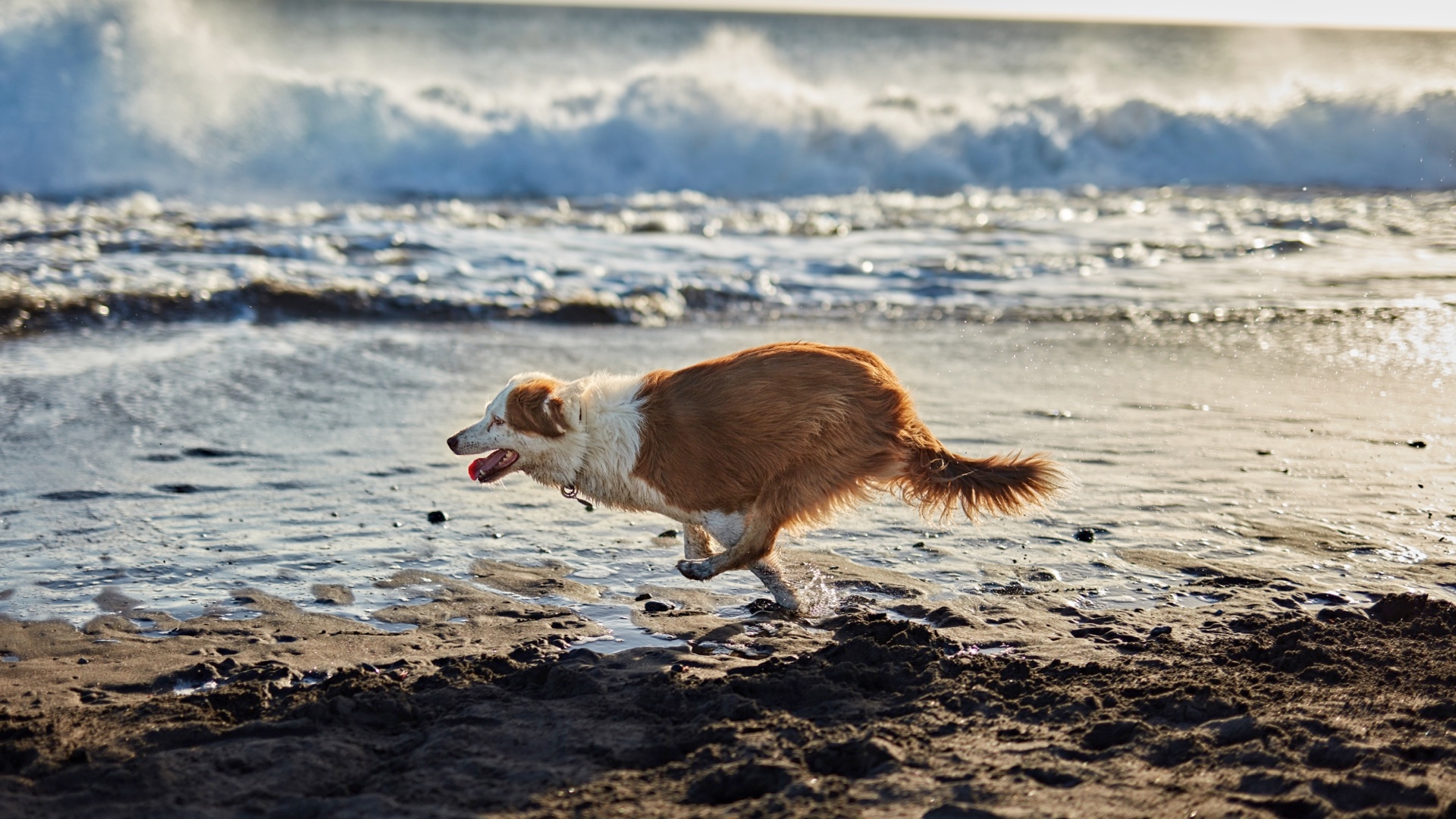Hot Weather Pet Tips:
Summary:
Cats and dogs do not have the ability to sweat; they cool their bodies off by panting and through the pads of their feet, so when the weather is extremely hot it is much harder for your pet to cool off. That's why extreme heat can be deadly for your pet. Don't take any unnecessary chances.
Heat can be deadly for your pet. Cats and dogs cannot sweat; they cool their bodies off by panting and through the pads of their feet, so when the weather is scorching, it is much harder for your pet to cool off. Here are some tips for keeping your pet safe this summer:
- Never leave your dog in a parked car: Even cracking a window won't protect your pets. It is against the law in California and could be punishable by a fine. A car can reach 120 degrees in just minutes; even if the windows are slightly open, the car can still reach 102 degrees. A dog's average temperature is 101.5 degrees; at 120 degrees, your pet can suffer from heat exhaustion and die; at 107 degrees, brain damage occurs.
- Bring pets inside and avoid extreme heat: When temperatures get above the 90s, bring your pet(s) inside. Even outdoor pets need access to plenty of water and a cool inside space during hot weather.
- Don't forget about outdoor and barn animals: Livestock and other barn animals are just as susceptible to heatstroke as indoor pets. Keep them cool with large amounts of clean, fresh water, well-ventilated shelters, and access to shade. Consider installing misters and mud holes and spraying down hot surfaces like concrete, asphalt, sand, and even wood. Electrolytes and salt blocks are also great for keeping barn animals hydrated. Chickens can be especially susceptible to dehydration and heat stress during sweltering weather.
- Don't exercise with your pets when it is too hot: Older and certain long-haired dogs can be particularly susceptible to heat, and hot asphalt can burn their paws. Exercise in the early morning or evenings and ensure both of you have plenty of water. It will be easier for both of you. - Use sunscreen: Pets get sunburned just like people, and if your pet has light skin, they can be particularly susceptible to a painful burn. Use sunscreen on sensitive areas, such as ears or nose, to make sure your pets are protected. Pets with white and light fur and those with light or pink-colored ears and noses are at risk for skin cancer. - Secure your dog during transport: Make sure your dog is secured safely in your vehicle. Do not transport your dog in the bed of a truck. Truck beds get extremely hot and burn footpads, and coupled with the full-sun exposure, it can cause heatstroke.
- Be your pet's lifeguard: While swimming can help some of your pets get exercise without overheating, always supervise your pets when swimming either in a pool or in area waterways. A dog could get tired swimming, particularly in the river, and must fight against currents. Make sure they wear life jackets and keep them out of the water when flows are high.
- Don't take your pets to crowded summer events: The heat, noise, and crowds can overwhelm your pet. It is best to leave them in a quiet, cool environment at home.
Pets in Cars - Know the Dangers!
Many pets prefer to stay home, but if you must take your pet with you in your car, do so safely: Cats should ride in pet carriers, and dogs should ride in travel crates or wear a safety harness. When a pet travels, he should wear two ID tags—one with a home address and one with a destination address.
- Temperatures inside parked cars can jump 20 degrees in 10 minutes.
- If you see an animal in a car exhibiting signs of heat stress,
call your local animal care and control agency or police
department immediately and take the following steps:
- Get the vehicle's tag number and enter the nearest store or business to request an emergency announcement be made about a pet left in a hot car.
- Go back and wait for police at the vehicle.
If your pet has been exposed to high temperatures
- Be alert for signs of heat stress, including heavy panting, glazed eyes, a rapid pulse, unsteadiness, staggering gait, vomiting, or a deep red or purple tongue.
- Immediately move your pet to the shade to gradually lower its temperature. Apply cool (not cold) water to the pet, and provide lukewarm or cool water to drink.
- Take your pet to a veterinary hospital immediately. It could save its life.


